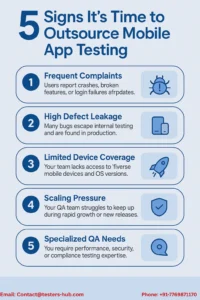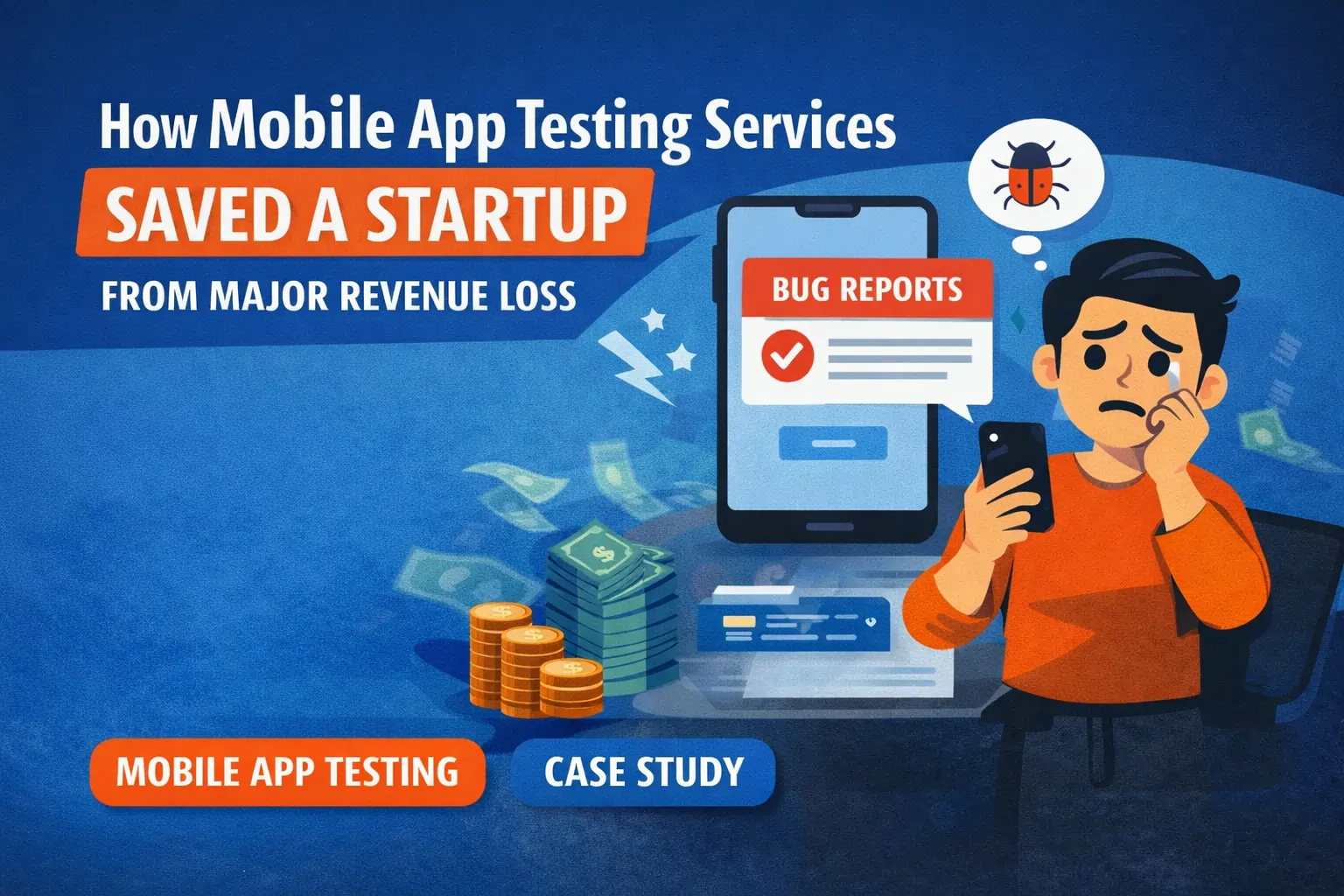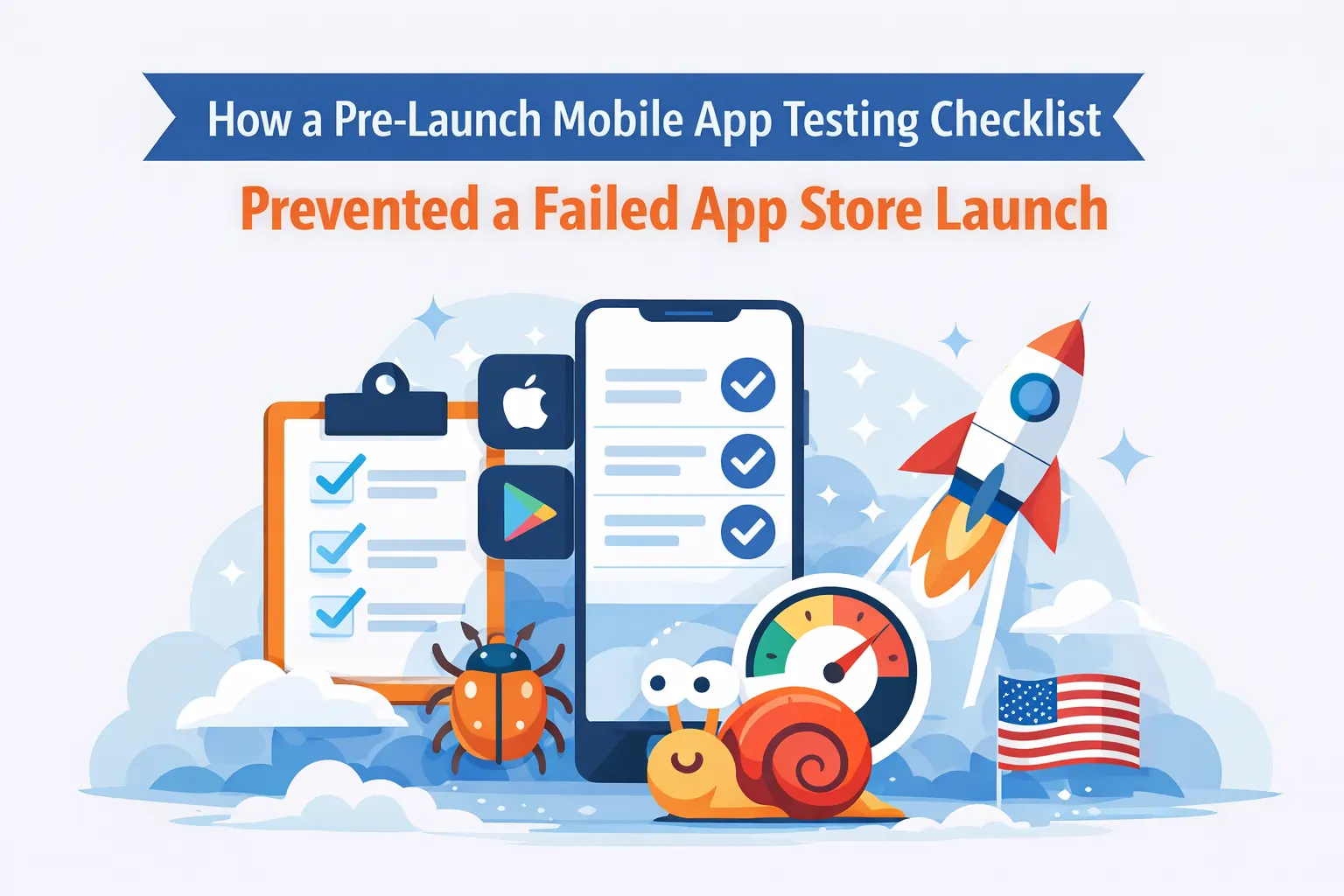When Should Startups Outsource Mobile App Testing?
Introduction
Every startup dreams of releasing an app that wins users quickly. However, moving fast often means that testing does not receive the attention it deserves. As a result, bugs slip through, performance issues frustrate users, and ratings in app stores decline. Startups then face the big decision: Should we handle QA ourselves, or is it time to outsource mobile app testing?
Outsourcing is not about giving up control. Instead, it’s about extending your capabilities with experienced professionals who can deliver quality faster and at scale.
👉 Want expert help right away?
The Startup QA Struggle
In the beginning, most startups have small teams with tight budgets. Developers often double up as testers, which leads to overlooked defects. Because speed is prioritized over quality, releases may reach the market with flaws that damage user trust.
Common problems include:
- Bugs that make it into production.
- Poor coverage across Android and iOS devices.
- Features breaking after each update.
- Negative user feedback and high uninstall rates.
This cycle drains resources and slows growth — exactly what a startup cannot afford.
Signs It’s Time to Outsource Mobile App Testing
Recognizing the right moment to look outside is critical. Here are key warning signs:
- Frequent complaints about crashes, login failures, or missing features.
- High defect leakage, with users finding more bugs than your team.
- Limited device coverage due to lack of access to diverse hardware.
- Scaling pressure during fundraising, new launches, or marketing pushes.
- Need for specialized QA, such as performance, security, or compliance testing.
If even two or three of these apply, outsourcing mobile app QA becomes a smart next step.
Benefits of Outsourcing for Startups
When startups choose to outsource, the advantages add up quickly:
- Domain expertise – access to testers experienced with apps in fintech, healthcare, eCommerce, and gaming.
- Device variety – real-world testing on multiple devices and OS versions without buying them all.
- Flexible resources – scale the QA team up or down as needed.
- Lower costs – avoid salaries, benefits, and training for in-house testers.
- Faster delivery – shorter release cycles with structured test execution.
With the right partner, outsourcing turns QA into a growth enabler rather than a bottleneck.
Risks and How to Handle Them
Startups often hesitate to outsource because of perceived risks. The most common concerns are:
- Over-reliance on external testers.
- Communication gaps caused by time zones.
- Security issues with sensitive user data.
These risks can be managed. Clear agreements (SLAs), strict NDAs, and overlapping working hours reduce friction. Choosing a mobile app testing company with strong reporting processes ensures you stay in control
When In-House Testing Still Works
Outsourcing is not always necessary. Very early MVPs with only a few features can be tested in-house. If your app targets a small audience and rapid iteration is more important than polish, internal QA may be enough for a while.
However, once your user base grows, app complexity increases, or updates become frequent, relying only on developers to test is no longer sustainable.
Best Practices for Outsourcing Mobile App Testing
To get the most from outsourcing, keep these practices in mind:
- Begin with a trial phase to evaluate the QA partner’s workflow.
- Set a clear scope covering devices, test cases, and reporting.
- Use shared bug-tracking tools like Jira or ClickUp.
- Keep communication consistent through Slack or regular stand-ups.
- Balance manual and automated testing to cover both usability and regression checks.
Following these steps ensures outsourcing delivers value from the start.
👉 Looking for a reliable QA partner?
Conclusion
Startups succeed when they move quickly, but moving without quality can be dangerous. Knowing when to outsource mobile app testing is about timing: keep testing in-house during the earliest stages, but once issues affect growth, outsourcing becomes essential.
By partnering with an experienced mobile app testing company, startups can launch confidently, scale faster, and retain more users. In short, outsourcing QA is not an expense — it is an investment in stability and success.
👉 Ready to scale your app with expert QA?
Frequently Asked Questions (FAQ)
Why do startups outsource mobile app testing?
Because outsourcing provides device coverage, skilled testers, and structured QA processes at a lower cost than building an in-house team.
What is the best stage to outsource mobile QA?
Once bugs reach production frequently or your user base grows beyond what your internal team can handle, outsourcing makes sense.
How much does outsourcing mobile app testing cost?
Pricing varies depending on devices, test scope, and engagement model. Startups can choose hourly, fixed, or monthly options.
Is my app data safe with outsourced testers?
Yes, provided you select a partner with NDAs, secure environments, and clear compliance practices.
Can outsourced testers work with my developers directly?
Absolutely. Most QA partners integrate into existing workflows and communicate through shared tools like Jira, Slack, or Trello.











